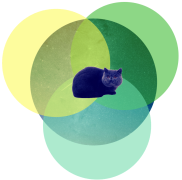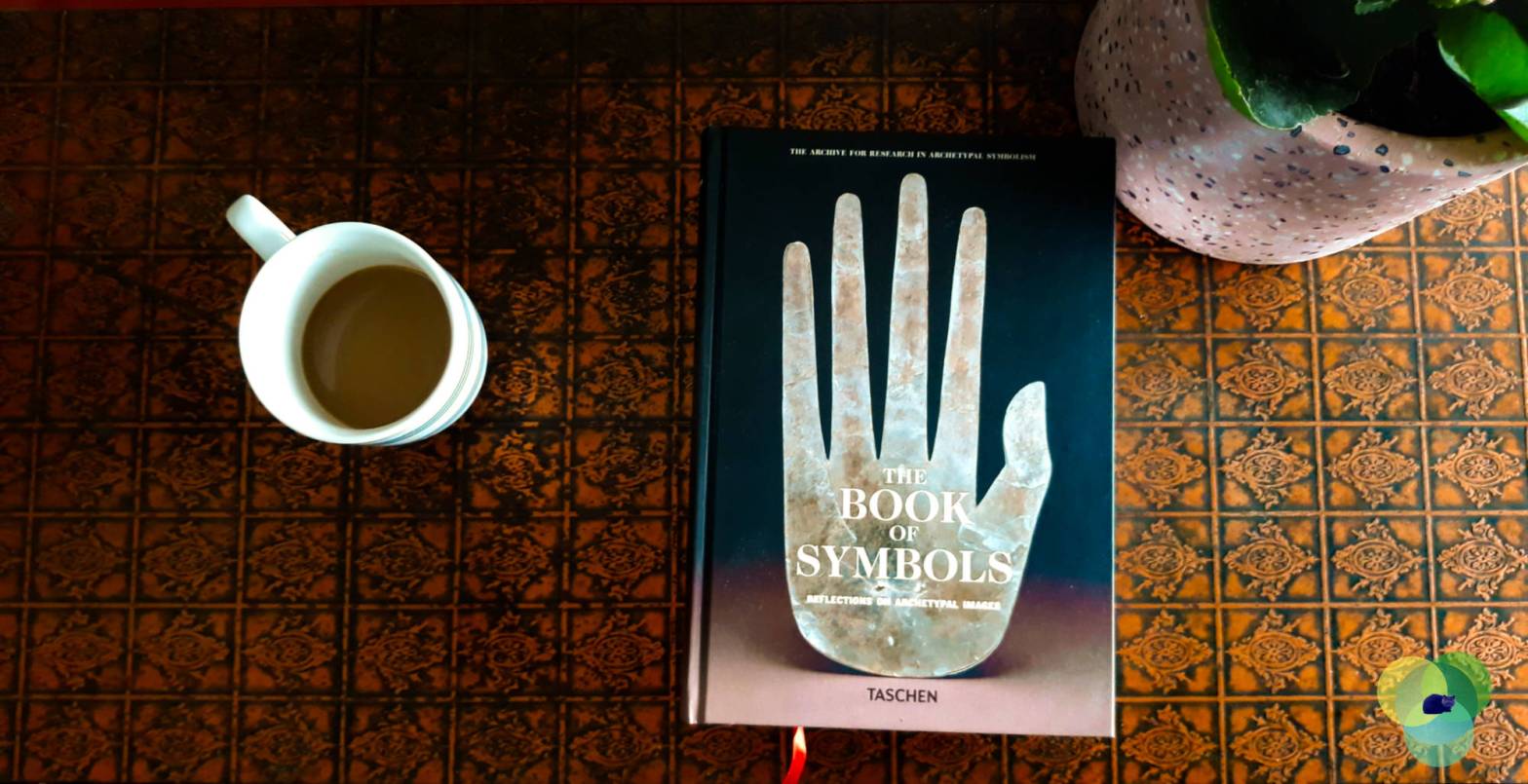Here’s a collection of some of the non-fiction I have reviewed in the past, ranked as a top ten. The subject matter and time periods vary, but I really like the history of medicine, psychology, symbolism, medieval history, animals and more.
1. The Book of Symbols by the Archive for Research in Archetypal Symbolism (ARAS)
This is my favourite book of all time. That’s a big statement because I’ve read many books. Aside from being a superb reference book, this book is for anyone who has a curious nature, enjoys quirky history and appreciates art and beauty. It is hard to not feel a sense of awe at the beautiful typesetting and illustration along with the evocative and fascinating write-ups. The storytelling is weaves together the Jungian archetypal, the Freudian and post-modern into a cohesive whole. It achieves what most other books can only dream of achieving, an accurate description of the material world we live in, in all of its splendour and wonder. Read more
2. Medieval Bodies Life and Death in the Middle Ages by Jake Hartnell
Medieval Bodies is an incredibly enjoyable read. How medieval people saw themselves and their own bodies in relation to the medieval world could be a boring book, but Hartnell is an exceptionally skilled writer, making for an entertaining and yet erudite read. He deftly shifts between ancient mysticism, religion, politics, medicine, art and culture. Almost every page features amazing full colour illustrations which vividly bring to life beliefs about the body in ancient times. Read more
3. The Book of Barely Imagined Beings by Caspar Henderson
The Book of Barely Imagined Beings takes its cue from medieval bestiaries. Author and playful intellectual Caspar Henderson sets out to write a modern compendium of beasts, and show, in the process, that truth is a lot weirder than fiction. Forget about dragons, cyclops and faeries, the world of extant species such as the thorny devil, nautilus and puffer fish are enough to inspire wonder. Read more
4. Life in a Medieval Castle by Frances and Joseph Gies
Life in a Medieval Castle focuses on Chepstow, a crumbling Norman castle that survived the turbulent Middle Ages and has remained battle scarred but still standing today. Husband and wife historians, the Gieses take us through the full cycle of a medieval year, governed by the rhythms of the harvest and occasionally punctuated by war, invasion and a bad crop. We learn all about how lords and ladies thought about themselves and others, and what they ate, wore, did for pleasure and how they imagined the world to be.
The book is all the more compelling because it’s factual and this adds further weight and colour to the already colourful descriptions of medieval falconry, sumptuous banquet menus, honourable knights, forthright and strong women and the currencies of power that flowed through these iconic castles. The medieval magic and romance of castles isn’t dismantled in this book, but rather is celebrated in all of its imaginative glory and colour. Read more
5. Book Review: The Butchering Art by Lindsey Fitzharris
This is an electrifying book about the history of surgery from the point of view of one of its pioneers, Joseph Lister. A humble and unassuming Quaker, Lister managed to rise up through the ranks of Edinburgh’s medical community and gained a reputation along the way for his serious dedication to experimentation and the empathetic and personalised care he offered to his patients. Read more
6. The Map of Knowledge by Violet Moller
The Map of Knowledge: How Classical Ideas were Lost and Found A History in Seven Cities is a really great book for curious minds, history lovers and anybody who simply enjoys romping through ancient cities.
Writer and historian Violet Moller brings to life the vibrant and bustling stories of ancient cities of Alexandria, Baghdad, Cordoba, Toledo, Salerno, Palermo, Venice and beyond. Along the way we learn how iconic texts and manuscripts including Euclid’s Elements, Ptolemy’s The Almagest and Galen’s works on medicine and psychotherapy were passed down through generations and via the steady, determined hands of various key people (many who are obscure in the history books). Read more
7. The Sky Atlas by Edward Brooke Hitching
The Sky Atlas is a definitive history of the sky from folklore and mystical origins of weather gods, wizards, daemons, medieval aliens, sky-dwelling dragons and other splendid mythological creatures. It’s a treasury and history of some of humankind’s most beautiful maps and charts. Yet this book is more than that, it’s a sparkling and glittering array of sky-bound achievements. It’s a visual history of what it has felt like over aeons to look up at the heavens in wonder. Read more
8. Weatherland by Andrea Harris
Weatherland by Alexandra Harris is a sweeping panorama and magic carpet ride through the history of England using a quirky weathervane to measure the changing culture – the weather.
Author Alexandra Harris’ debut book won The Guardian’s Book of the Year. It’s no surprise either because this is a far-reaching, expansive book written in an engaging, poetic and erudite way.
Harris casts her curious eye and nimble mind over how weather has been portrayed since ancient times in literature and art in Britain. The prose is tight, imaginative, deliciously inventive. You are swept along as though you’re reading a great fictional novel. This is no prosaic story of a mundane subject. Instead it’s a majestic and all-encompassing history of England as a whole, and it’s beautiful. I relished every page and was sad when it ended. Read more
9. The Fashion Chronicles: Style Stories of History’s Best Dressed by Amber Butchard
History is awash with stories of battles and important events, but not enough attention is paid to what people were wearing at the time and how clothing and adornment makes the personal political, and often has revolutionary consequences. This book is an important part of the puzzle of history. Read more
10. Lost Wisdom by Una McGovern and Paul Jenner
This is a wonderous and obscure treasure that I found in the library. Written by Compiled by Una McGovern and Paul Jenner in 2009 it is designed to completely wallow in; with beautiful images and areas of interest grouped logically. Lost Wisdom is a part of a trilogy of books that provides us with insight into ways and methods of everyday living, crafts and lore and it glimmers with the shared knowledge of our foremothers and forefathers.
This is a compendium of old wive’s tales and medieval European wisdom that has guided and sustained people for many centuries before modern technology ran the whole show.


A very interesting list!!
LikeLike
Thank you so much glad you enjoyed it
LikeLike
Yes, I did! 🙂
LikeLike
I swear I’m gonna end up bookmarking just about every blog post 😛 Thanks!
LikeLike
That makes me so happy to hear that Lani I’m so excited for you, I hope you will love these books if you find them 😘
LikeLike
A fantastic list, thanks for sharing! I completely agree on The Butchering Art and thanks to you, I finally read Medieval Bodies, which was very good. The Book of Symbols is still on my TBR and today I am adding to my TBR Life in a Medieval Castle.
LikeLike
You are very welcome my friend. So glad you enjoyed The Butchering Art and Medieval Bodies 🙂😺 Also I’m pleased you will add Life in a Medieval Castle to your TBR, it’s a classic book. Particularly the descriptions of the falconry are really amazing.
LikeLike
Cool list. I am have to attempt a list like this for myself 🙂
LikeLike
Thank you Rob, I really hope you do your versions I would love to read it 🙂
LikeLiked by 1 person
Just started to narrow down my list to ten books. This is actually a lot of fun. Stay tuned. Hoping to have this ready over the weekend.
LikeLiked by 1 person
I’m very exciting to read it!!
LikeLiked by 1 person